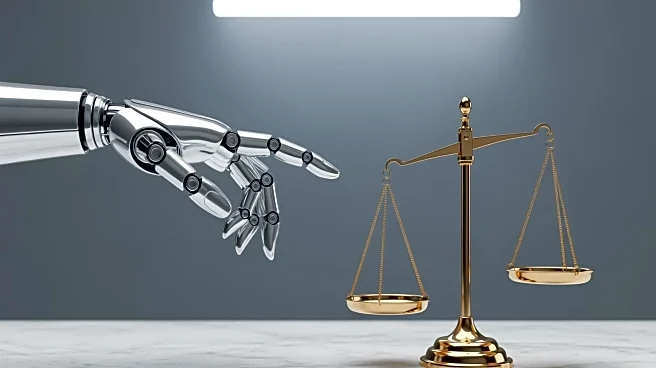What's Happening?
Howard Schultz, former CEO of Starbucks, has voiced significant concerns about the rapid advancement of artificial intelligence (AI) and the lack of regulatory measures to manage its impact. In an interview,
Schultz compared the trajectory of AI to that of social media, highlighting the delayed regulatory response that failed to address social media's adverse effects. He emphasized the moral responsibility of Big Tech leaders to consider the societal implications of AI development. Schultz supports AI adoption but stresses the need for proactive regulation to prevent potential negative consequences.
Why It's Important?
Schultz's concerns about AI highlight the growing debate over technology's role in society and the need for effective regulation. As AI continues to evolve, its impact on industries, employment, and privacy becomes increasingly significant. Schultz's call for moral responsibility among tech leaders underscores the ethical considerations in AI development. The lack of regulation could lead to unforeseen challenges, affecting various sectors and public policy. His perspective adds to the discourse on balancing innovation with societal well-being, urging stakeholders to prioritize responsible AI integration.
Beyond the Headlines
Schultz's remarks reflect broader ethical and cultural dimensions of AI development. The rapid pace of AI innovation raises questions about privacy, security, and the potential for bias in automated systems. The call for moral responsibility among tech leaders suggests a need for collaborative efforts to address these challenges. Schultz's emphasis on regulation highlights the importance of aligning technological progress with societal values, ensuring that AI benefits are maximized while minimizing risks. This discourse may influence future policy decisions and industry standards.










